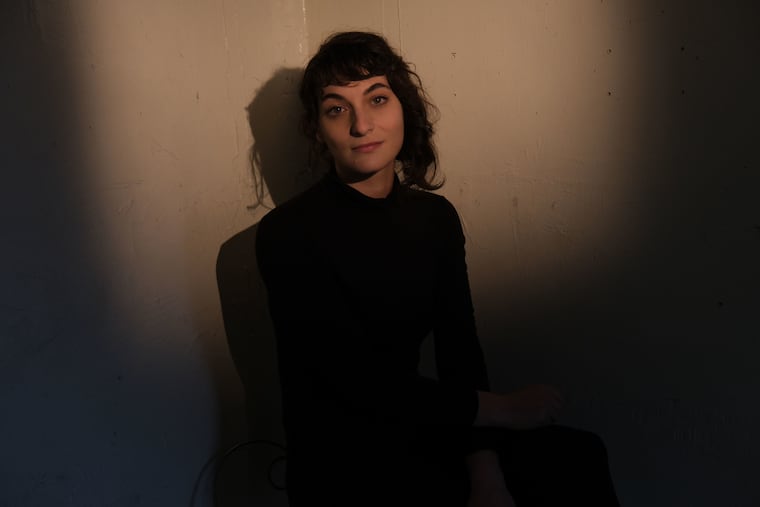The 2019 Philly refinery explosion inspired new ‘industrial music.’ It premieres this weekend.
As composer Lea Bertucci read about the disaster, she wondered about the long-term effects of the more than 5,000 pounds of deadly hydrofluoric acid that were released into the air.

Undoubtedly, the June 2019 explosion at the Philadelphia Energy Solutions oil refinery could have been much worse. An Inquirer article published shortly after the blast was titled “How Philly dodged a catastrophe.”
As composer Lea Bertucci read about the disaster, however, it wasn’t the immediate impact that worried her. She wondered about the long-term effects of the more than 5,000 pounds of deadly hydrofluoric acid released into the air.
“This explosion happened,” Bertucci said this week from her home in New York City. “And that left a cloud of pollution downstream going into underserved communities that are on the so-called outskirts of Philadelphia. That got me thinking about the aftereffects of the moment that something happens — the afterimage, or the retina burn of an event.”
That train of thought resulted in Bertucci’s new piece “Of Shadow and Substance,” which she’ll premiere Friday at Brooklyn’s Pioneer Works and on Sunday at the American Philosophical Society’s Benjamin Franklin Hall in Philadelphia. The piece features new music written for an ensemble of double bass, cello, harp, and percussion, with Bertucci on tapes and electronics.
“It’s sort of industrial music,” Bertucci described with a faint laugh. That’s not to suggest that the composition bears any resemblance to artists like Nine Inch Nails or Skinny Puppy who are typically tagged with that label. Instead, the industrial nature of the refinery itself inspired the composer to use what she calls “scientific elements,” employing electronics in a more conceptual than aesthetic fashion.
“Brief portions of the performance are sampled live, overdubbed a million times and diffused in the room through auxiliary speakers after the ensemble concludes playing live,” she explained. The live musicians “fade out and there’ll be a cloud or haze of sound left after they’re done. That speaks to the impact of an event in time [to parallel] the environmental impact of human actions that are a bit questionable.”
Bertucci’s work combines acoustic instrumentation, particularly her own woodwind playing, with speaker arrays and live sampling in order to explore the resonance of sound in space. That includes site-specific works such as 2018′s “Acoustic Shadows,” a sound installation in the hollow body of a bridge in Köln, Germany, that played with notions of sustained dissonance similar to those she’s employing in “Of Shadow and Substance.”
The new composition also echoes some of the themes found in Superterranean, the theater piece on which she collaborated with Pig Iron Theatre Company and designer Mimi Lien that premiered at the 2019 Philadelphia Fringe Festival. That large-scale work dealt with the effect of urban infrastructure on the human body and brought Bertucci to Philadelphia for more than a month in the summer of 2019, where she learned of the refinery explosion.
“Of Shadow and Substance” was commissioned by Philadelphia presenting organization Ars Nova Workshop. “Three years ago, I engaged Lea on the idea of developing a deeper, conceptual and uniquely Philadelphian project,” wrote Ars Nova director Mark Christman in an email.
“The project’s central concept is that the overall process of environmental degradation, as well as the individual environmental incidents that amount to the ‘thousand little cuts’ that create the deep wound of climate change, are difficult to comprehend in their entirety; and that music, because it implicates the body of the listener in its production, can re-presence an audience’s individual and collective awareness to these phenomena that both loom large (literally) over urban neighborhoods and are routinely ignored or overlooked in our day-to-day urban lives.”
Bertucci and Christman briefly investigated salvaging pieces of the fragmented metal containers destroyed in the blast for use as sculptural elements, and visited a farm across the river from the refinery site as a possible locale for the performance. These direct connections to the event were eventually rejected for both practical and artistic reasons as the composer’s focus shifted to the ideas prompted by the explosion rather than the event itself.
“I’m not as interested in site specificity in this case as I am in using this site as a springboard for this larger idea about the aftereffects of an event in time,” Bertucci said. “I did research into the nature of elements, what happens when something combusts and fluid dynamics stuff. Somehow I weaved that all in — I’m not entirely sure how. I wanted to use it as a metaphor, as poetry to structure a piece of music around. Speaking of it in terms of an environmental event has larger philosophical implications that I think are particularly important.”
That mission is also reflected in Christman’s vision for Ars Nova Workshop, which has expanded over the course of its 22-year history beyond simply presenting avant-garde jazz concerts for Philly audiences.
“We believe that creative music enriches, expands, and even heals the lives of our fellow citizens, and that it provides a means of understanding our world in different, more nuanced — and important — ways,” Christman wrote. “This project is another step in establishing the more elevated and integrated understanding and experience of creative music and how it can be part of our personal lives and the conversations around important aspects of civic life.”
If Sunday’s performance can have that kind of impact on audiences, than perhaps its own ripple effect can help to balance the negative aftereffects of the disaster that inspired it.
Lea Bertucci, 8 p.m., May 8, Benjamin Franklin Hall, American Philosophical Society, 427 Chestnut St., $20, arsnovaworkshop.org